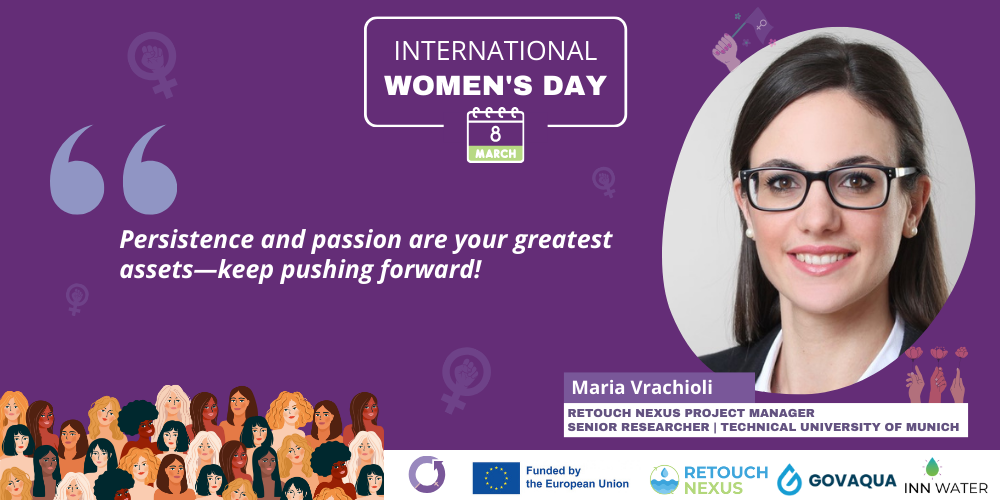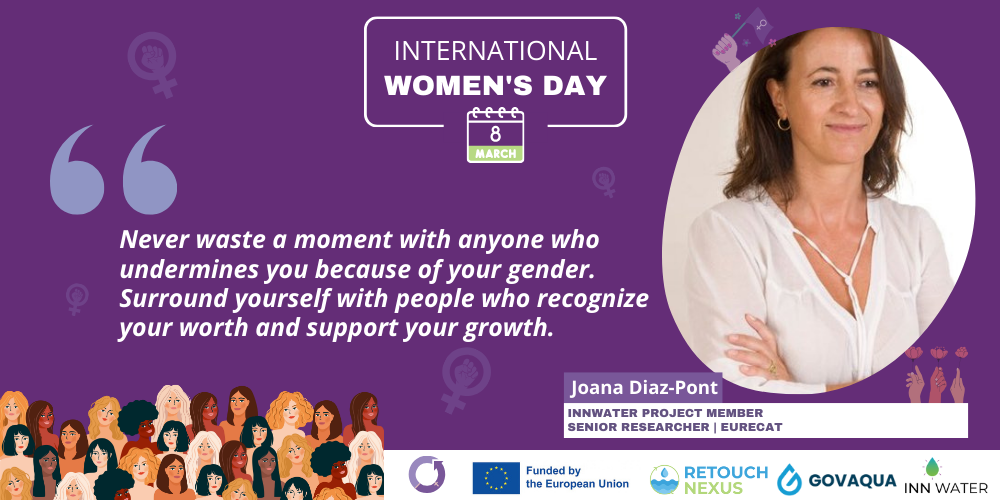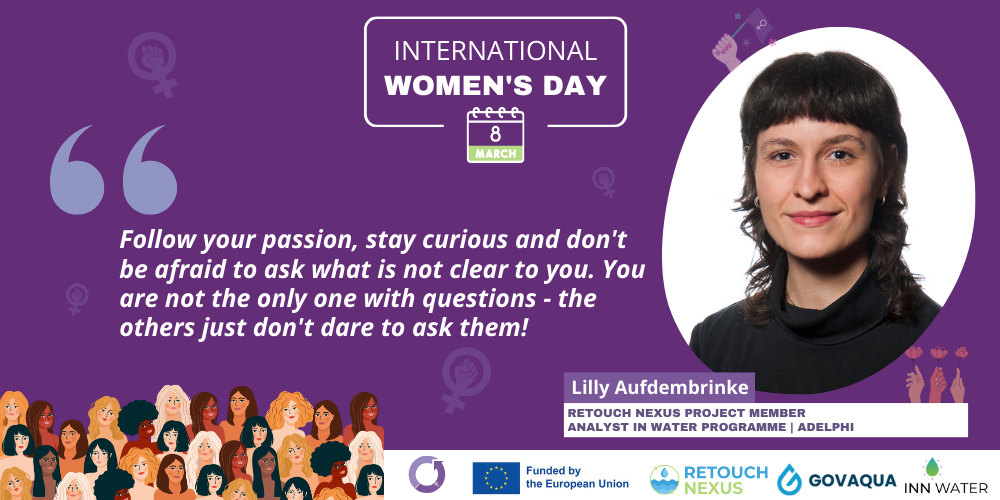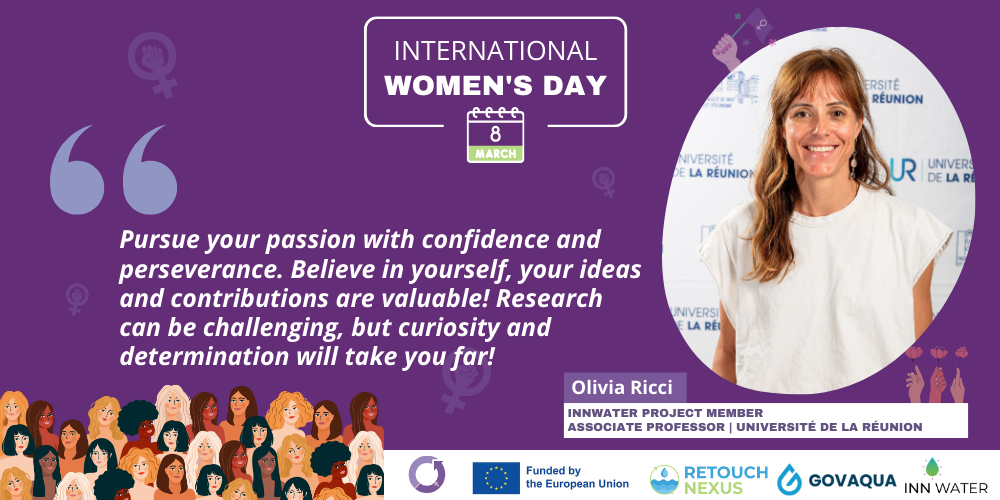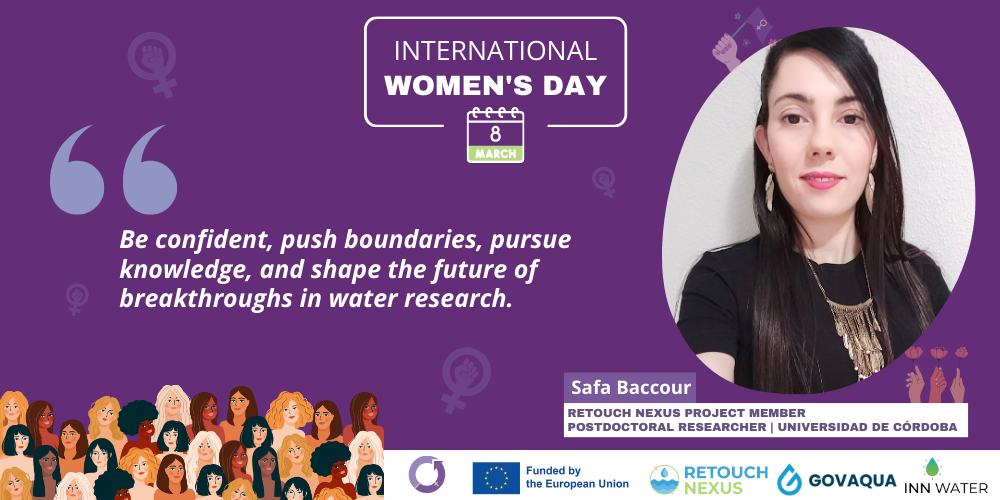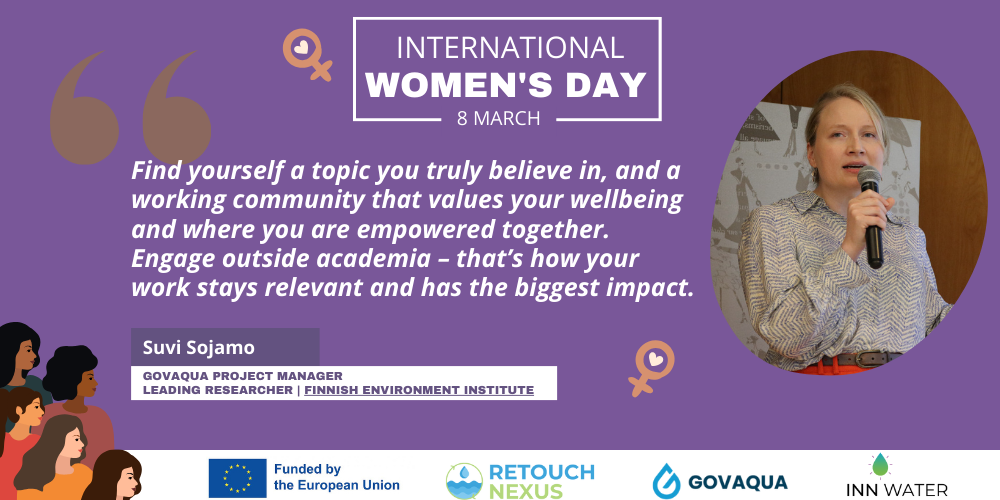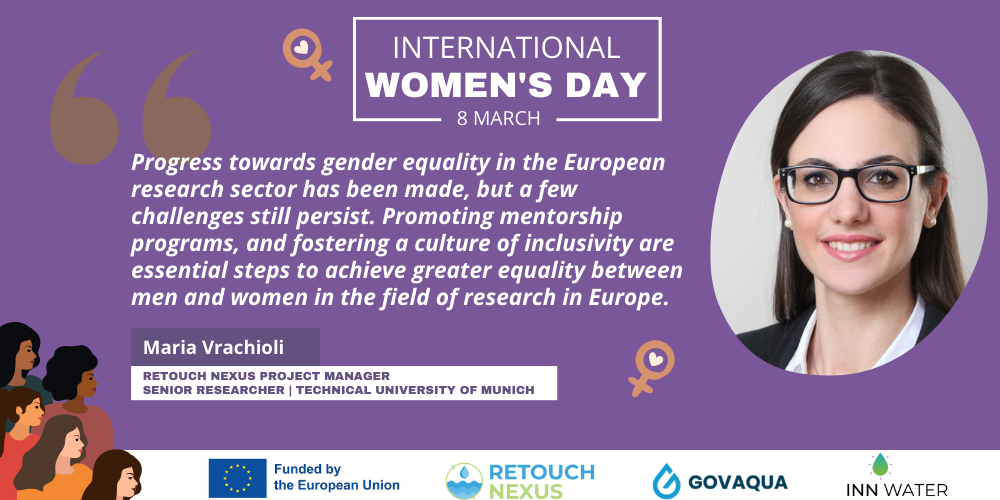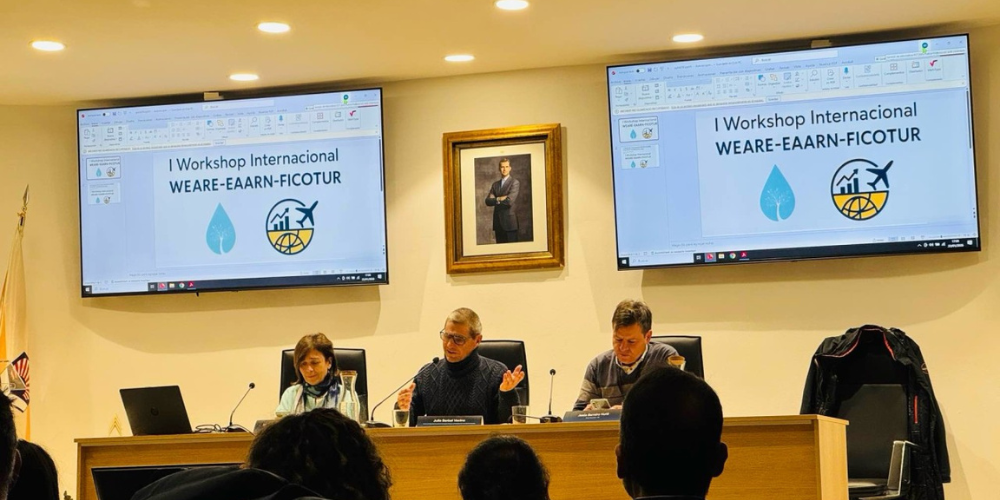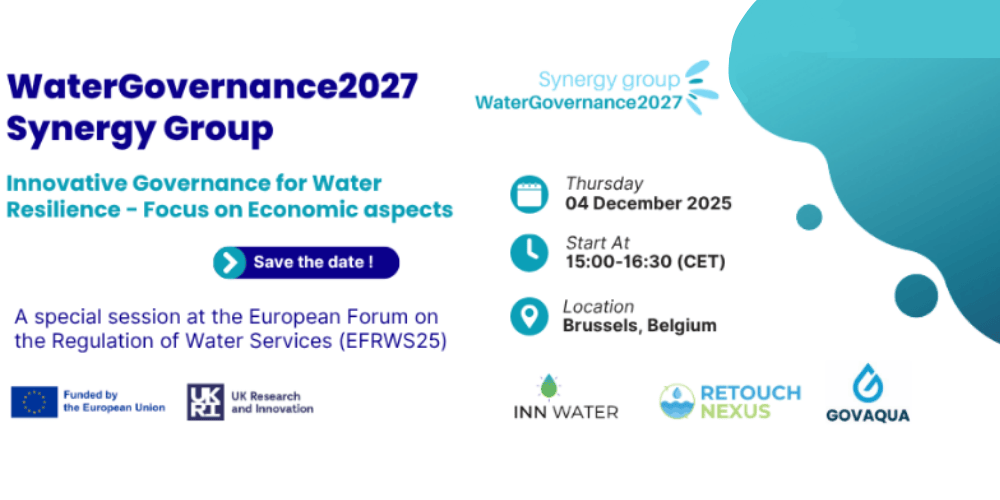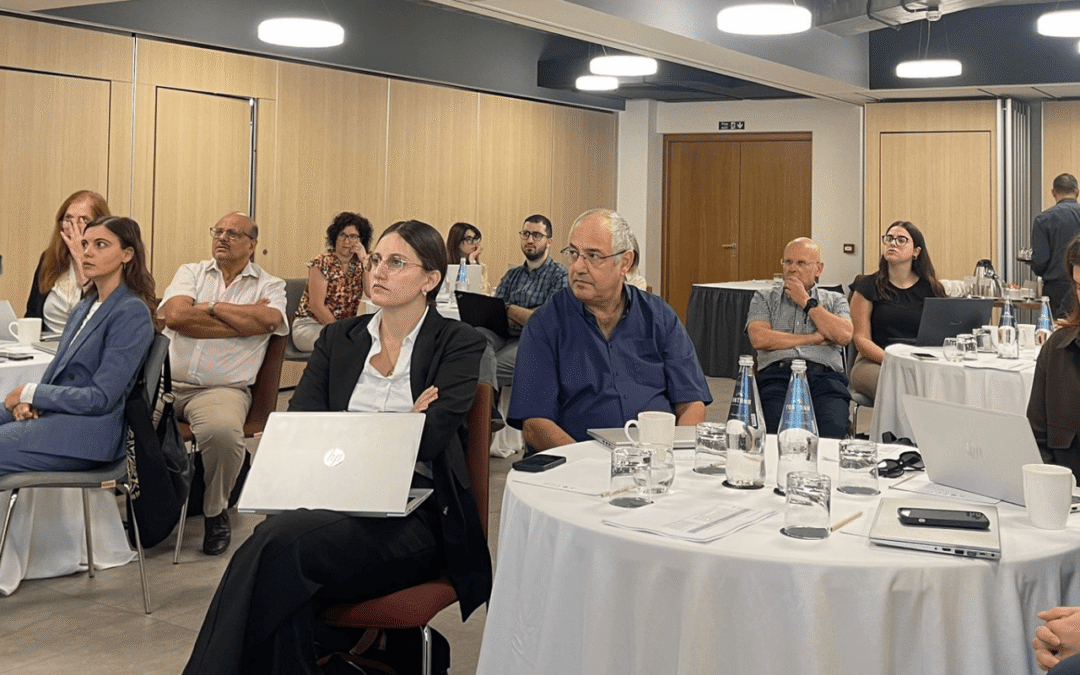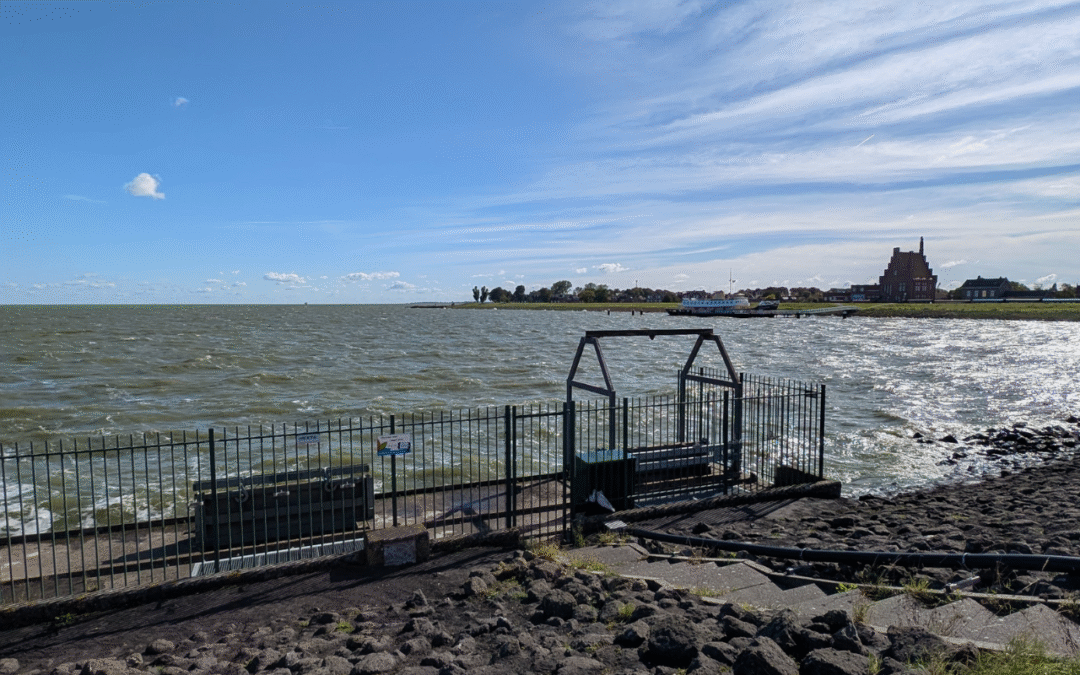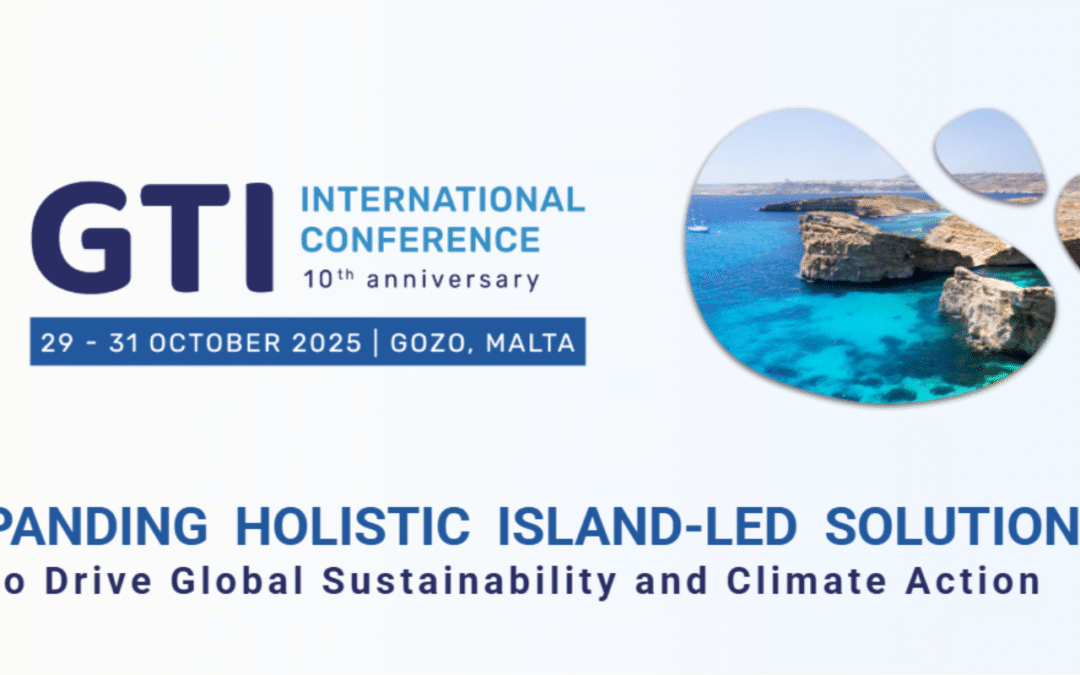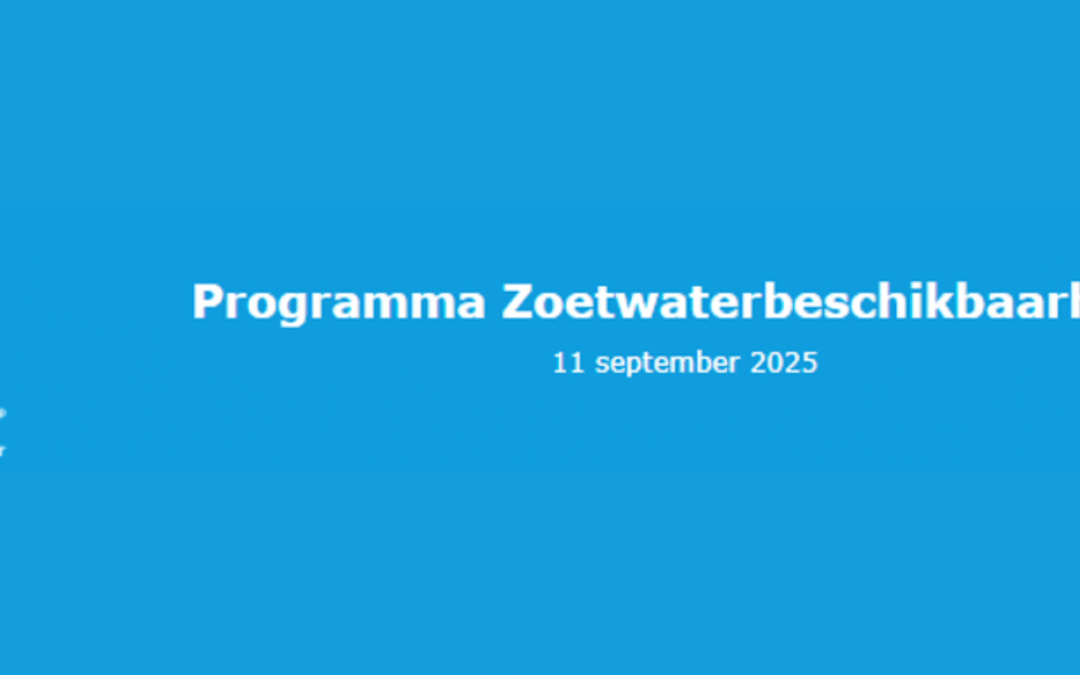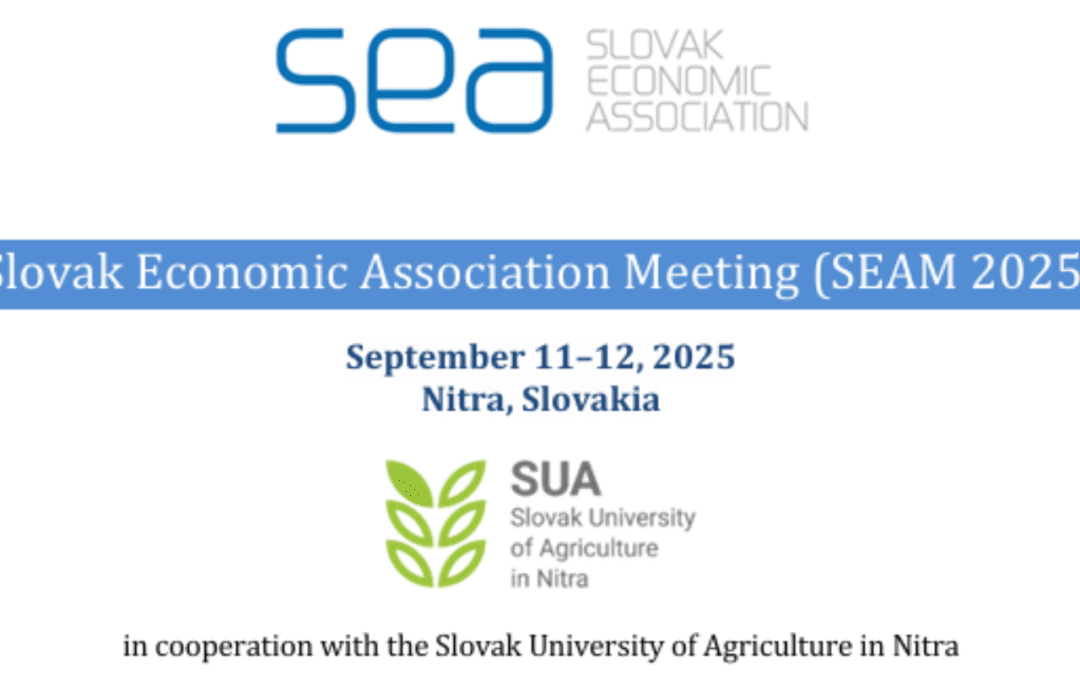Together with our sister projects of the Water Governance 2027 Synergy Group, GOVAQUA and InnWater, we are delighted to dedicate this article to our female researchers to promote their work and careers around the development of water governance approaches.
These innovative approaches take into account the interdependencies between the UN Sustainable Development Goals (SDGs) and the design of coherent water governance practices and policies at different levels and in different sectors.
As part of RETOUCH NEXUS, we interviewed Ms Maria Vrachioli, Senior Researcher at the Technical University of Munich and our Project Manager.
Career and challenges
Q.: Could you share your journey to becoming a researcher? What inspired you to pursue this path, what challenges have you faced as a woman in your field, and what is the most valuable lesson you’ve learned from these experiences?
Ms Vrachioli: As a first-generation female researcher, I pursued this path with curiosity and determination. Societal changes have eased challenges, though some biases still remain. I’ve learned that perseverance matters more than background, and strong networks help create more opportunities in academia.
Role in the project
Q.: What do you do within the InnWater project? How have your studies and expertise enabled you to fulfil this role?
Ms Vrachioli: In the RETOUCH NEXUS project, I lead the socio-economic and environmental assessments of water governance. I also coordinate the project coordination across multiple partners. My background in economics, particularly in environmental and resource economics, equips me to analyze the economic implications of water use in different systems. This expertise allows me to assess how policy interventions can socially and economically optimize water resource management.
Europe
Q.: At European level, do you think the research sector has become more open to women? What could be done to achieve greater equality between men and women in this field?
Ms Vrachioli: The research sector in Europe has certainly become more open to women, with societal shifts making the journey smoother. However, despite progress, challenges persist, particularly in leadership positions and in certain fields. To achieve greater equality, we need stronger actions, like support mentorship programs and promote a better work-life balance. We need to encourage environments where success is based on talent and hard work, not gender. This is key to achieving gender equality in research.
Q.: As an expert in sustainable water governance, what do you see as Europe’s greatest challenge in implementing sustainable water governance?
Ms Vrachioli: From an economics perspective, Europe’s most significant challenge in implementing sustainable water governance is balancing economic growth with the increasing pressures of climate change on water resources. Ensuring that water pricing reflects its true economic value, incentivizes conservation, and supports equitable access while maintaining economic stability is crucial for long-term sustainability.
Q.: Finally, what advice would you give to future generations of women who want to become researchers?
“Persistence and passion are your greatest assets—keep pushing forward!“
Maria Vrachioli
Read other interviews with the researchers:
Building Resilience: Economic Instruments for Sustainable River Basin Management
Online – February 26, 2026 Join us for an expert webinar exploring innovative approaches to water governance across Europe On…
RETOUCH NEXUS Presented at the International Workshop WEARE-EAARN-FICOTUR in Córdoba
RETOUCH NEXUS was represented at the International Workshop WEARE-EAARN-FICOTUR: Establishing Networks, held on 22–23 January 2026 in Córdoba, Spain, within the session “Instruments and Policies…
Strengthening Europe’s Water Resilience: Three Projects Unite at Brussels Forum
Brussels, Belgium – December 4, 2025 RETOUCH NEXUS joins InnWater and GOVAQUA to present unified recommendations on economic dimensions of…
Check out the 5th RETOUCH NEXUS newsletter!
Are you passionate about sustainable water management and governance? 🌍💧 Subscribe to our newsletter and stay updated with the latest…
💧 Strengthening Stakeholder Engagement in Malta – RETOUCH NEXUS Workshop on the WEFE Nexus Ranking System
In October 2025, the Energy and Water Agency (EWA) hosted a new RETOUCH NEXUS Stakeholder Project Meeting in Malta, bringing…
RETOUCH NEXUS 5th General Assembly – Moving Toward Performance
As we progress through the third year of the RETOUCH NEXUS project, our consortium gathered in Amsterdam on September 23-24…
Join us at the 10th International Conference on Island Sustainability organized by the GTI Foundation
Gozo, Malta | October 29-31, 2025 Expanding Holistic Island-led Solutions to Drive Global Sustainability and Climate Action The RETOUCH NEXUS…
Informative evening for HHNK’s Freshwater Availability Programme
On Thursday, 11 September, the water authority Hoogheemraadschap Hollands Noorderkwartier (HHNK) held an information evening as part of the public…
RETOUCH NEXUS at SEAM 2025 – Advancing Water-Energy-Food-Ecosystem Governance in Slovakia
Nitra, Slovakia | September 11-12, 2025 The RETOUCH NEXUS project is proud to participate in the Slovak Economic Association Meeting…
🤝 Building a Participatory Path for Water Governance in North Holland
RETOUCH NEXUS supports stakeholder engagement for the Freshwater Availability Program. In response to the growing threat of water scarcity in…

